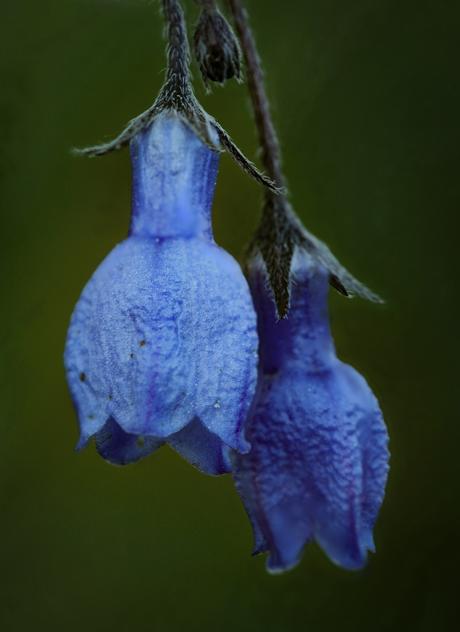No matter how people feel about Christianity, I imagine most would aspire to the place St. Paul arrived at when he declared:
“I have learned to be content whatever the circumstances.” (Philippians 4:11)
I don’t know about you, but I was hoping for a better 2021 than 2020. If anything, for me personally, 2021 brought more problems, not fewer. Family troubles intensified. Work conflict increased. And, though we have vaccines to mitigate the worst outcomes from COVID-19, the pandemic has not faded.
I wonder what Paul meant when he said he was content whatever the circumstances. Based on other things he wrote, I don’t believe he avoided or ignored the awful parts of life. After all, Paul was in prison at the time he wrote these words. In general, avoiding or ignoring difficult circumstances seems like a recipe for only increasing one’s problems in life long-term. So, the question I’m left with is: how can we honestly face life’s struggles and still be content?
Part of my prayer practice is to actively listen for God. Inspired by the Quakers, I set aside time regularly to be silent and see if any wisdom “bubbles up” or “reveals itself.” I also “listen for God” in other ways, such as in conversations I have with friends. Sometimes, if I can listen carefully enough (a big “if”), something does indeed “bubble up.” Sometimes, some of that “received wisdom” has stood the test of time.
I don’t know if any of this does a good job of answering my question – and I surely have a long way to go before I get to the place Paul was at – but when I consider how to honestly face life’s struggles and still be content, I find myself continually returning to four points of inspiration.
1. “Accept and expect irresolution.”
This is something my friend, the author and peace activist, John Noltner, likes to say. I clearly remember many years ago attending a small workshop with John when I first heard him emphasize this point. Years later, in silence, these words came back to me and they have stuck with me since.
I think part of what makes it so difficult to find contentment is we often look for final and complete resolution of our problems. Then, and only then, we believe, can we really reclaim our contentment.
But, I don’t think life works this way. Our struggles often are long-term and don’t always neatly resolve in the ways we wish they would. The pandemic is a perfect example. Many of us are looking for COVID-19 to go away when, in reality, there is no end in sight.
2. “Accept and respond well.”
A few years ago, in silence, these words seemed to come out of nowhere in me in relation to a problem I was struggling with. Interestingly, in the days and weeks and years afterward, they have continued to come to my mind.
There is a convergence of wisdom about the importance of acceptance. Many of the most promising forms of couples counseling and individual psychotherapy emphasize acceptance. Acceptance also is a cornerstone to 12-steps programs.
Our sense of contentment seems to increase when we acknowledge that, though we are suffering in real and potentially profound ways, we are, in some sense, also deeply okay. What we’re experiencing may not be preferable or pleasant, but it may be okay.
As Fredric Evans once said:
“So here is my little nugget of gospel truth for you to take home. The truth is not that it is going to be alright. The truth is, it already is.”
Even though our problems may not be resolvable, we also can still respond well in their midst. There may be underlying sources of our stress we can address to improve our situation. If nothing else, we can choose to express the distressing emotions we experience in relation to our turmoil in healthy – and not destructive – ways.
3. “Be patient.”
Probably the best conversation I had this year occurred when I was in deep anguish about some difficulties in my family. The friend I was talking with listened empathically and then suggested that maybe what was needed was some patience.
Even if the problem I was struggling with didn’t necessarily resolve itself, I knew she was right. With this realization came some peace.
I’m not exactly sure what patience always entails, but one thing I know for sure is that patience can be hard to put into practice. Still, we can recognize “this, too, shall pass,” “another day will come,” and much of what we’re struggling with, in some sense, may be somehow “temporary.”
For problems that won’t end in this lifetime, patience passes its baton to its close cousin: hope.
4. “Celebrate.”
This insight has recently struck me and is at the forefront of my mind these days. Note that “celebrate” is a verb. It is something “to do.”
Even in the midst of awful life circumstances, there are good things that can be celebrated. As the author and stage 4 cancer endurer, Kate Bowler, puts it in her wonderful TED talk, “life is so beautiful and life is so hard.” Both are simultaneously true. Yes, life is hard. It also is beautiful.

Blue bells
" data-orig-size="3313,4557" sizes="(max-width: 744px) 100vw, 744px" data-image-title="8" data-orig-file="https://thequestforagoodlife.files.wordpress.com/2019/06/8-2.jpg" data-image-description="" data-image-meta="{"aperture":"4","credit":"","camera":"Canon EOS Rebel T6","caption":"","created_timestamp":"1560707889","copyright":"","focal_length":"0","iso":"200","shutter_speed":"0.00625","title":"","orientation":"1"}" data-medium-file="https://thequestforagoodlife.files.wordpress.com/2019/06/8-2.jpg?w=218" data-permalink="https://thequestforagoodlife.com/photography-2/8-3/" alt="" srcset="https://thequestforagoodlife.files.wordpress.com/2019/06/8-2.jpg?w=744 744w, https://thequestforagoodlife.files.wordpress.com/2019/06/8-2.jpg?w=1488 1488w, https://thequestforagoodlife.files.wordpress.com/2019/06/8-2.jpg?w=109 109w, https://thequestforagoodlife.files.wordpress.com/2019/06/8-2.jpg?w=218 218w, https://thequestforagoodlife.files.wordpress.com/2019/06/8-2.jpg?w=768 768w" class="wp-image-2920" data-large-file="https://thequestforagoodlife.files.wordpress.com/2019/06/8-2.jpg?w=625" />So, while we honestly acknowledge the difficulties of life, let’s not lose sight of the beauty. Celebration is still possible. Even now.
***
I still wonder what constitutes real contentment. Maybe it involves acceptance of irresolution, responding well in the midst of adversity, being patient, and making sure to still celebrate the beautiful around us. If we can act on these four aspects of “received wisdom,” maybe we can enter the new year with a bit more peace.
